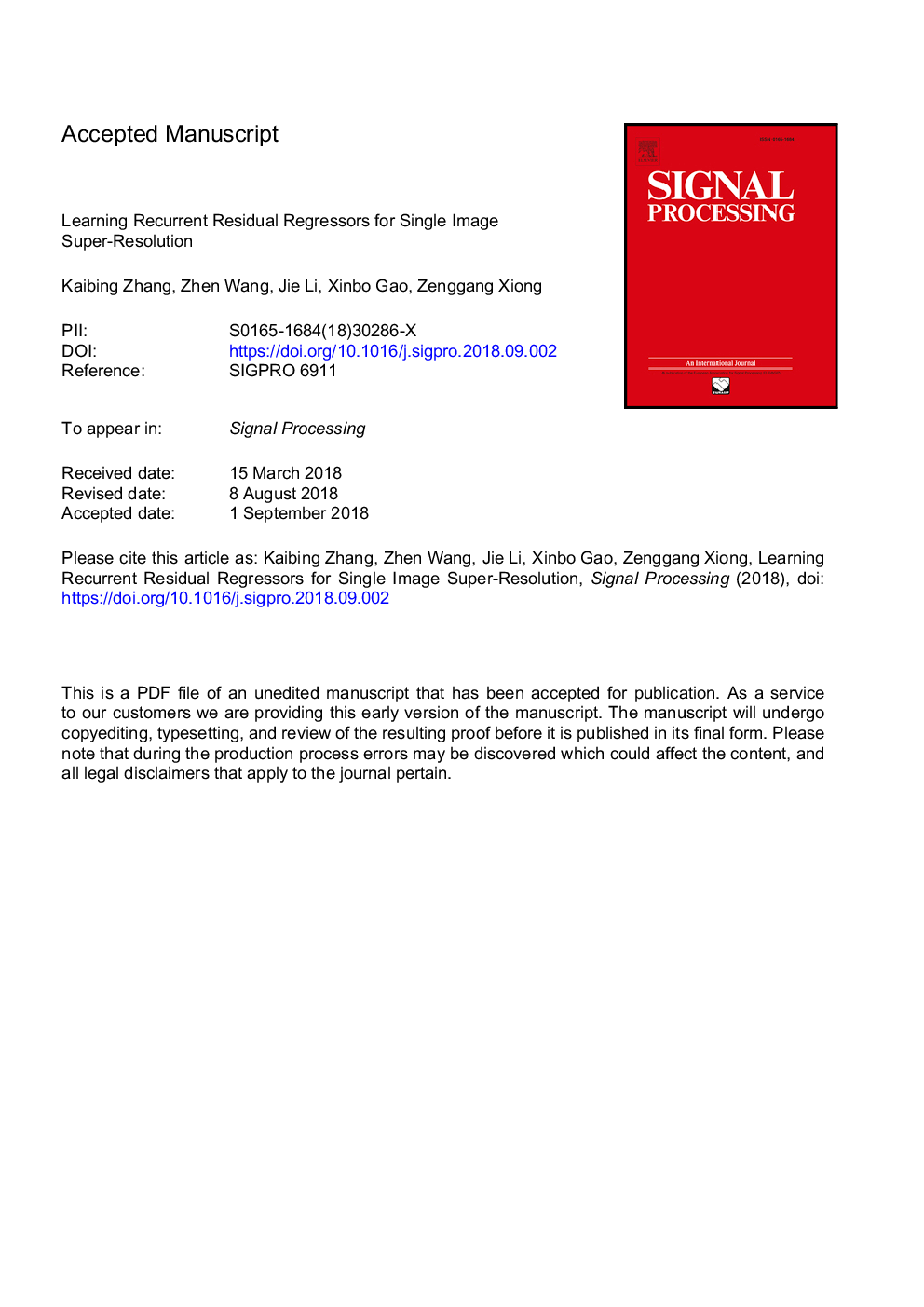| Article ID | Journal | Published Year | Pages | File Type |
|---|---|---|---|---|
| 11032450 | Signal Processing | 2019 | 48 Pages |
Abstract
Example regression-based single image super-resolution (SR) technique has been recognized as an effective way to produce a high-quality image with finer details from one low-resolution (LR) input. However, most current popular approaches usually establish the mappings from the LR feature space to the final HR one in one-pass scheme, which is insufficient to represent the complicated mapping relationship well. In this paper, we propose a novel single image SR framework by learning a group of linear residual regressors in a boosting manner so as to alleviate the gap between the underlying mappings and estimated mappings. In the training stage, we begin with the learning of a set of linear regressors by integrating the K-SVD dictionary learning algorithm and the ridge regression, and then further improve the HR estimate accuracy by learning multi-round residual regressors from the estimated errors in a cascade manner. Accordingly, in the testing stage more details can be gradually added into the input LR image by applying the learned multi-round residual regressors to SR reconstruction. The proposed SR method is fundamentally coarse-to-fine. Experimental results carried out on six publicly available datasets indicate that the proposed SR framework achieves promising performance in comparing with other state-of-the-art competitors in terms of both subjective and objective equality assessments.
Related Topics
Physical Sciences and Engineering
Computer Science
Signal Processing
Authors
Kaibing Zhang, Zhen Wang, Jie Li, Xinbo Gao, Zenggang Xiong,
